Heaven’s Vault is a breathtaking, emotional video game driven by memorable characters, sandbox play, precise responsiveness, and the gamification of language learning. Part archaeology adventure, part sci-fi point-and-click, no Heaven’s Vault review could be comprehensive after a single playthrough. After an exploratory eighteen hour game, though, I’ll do my best.
I’ve called books, movies, and larps (live action role playing games) life-changing before because those types of media typically allow me to feel seen through my experiences. As a player and game designer, I remain astounded by my cinematic adventure in Heaven’s Vault.
In Heaven’s Vault, you take on the role of Aliya Elasra (she/her), a young woman studying archaeology. Aliya is interested in adventuring and exploring the past. Her somewhat disapproving adoptive mother plucked her out of a poverty-stricken world and insists an intelligent robot (“Six,” I’ll assign pronouns they/them to the robot) accompany Aliya on her travels. At game start, Aliya lives on the privileged world if Iox, a contemporary reflection of a moon built from its far-reaching empire. As Aliya travels throughout the nebula in The Nightingale, her steampunk-style ship, she uncovers ruins, develops and strengthens relationships with other people and cultures, and illuminates truth in history. Furthermore, Aliya pieces together ancient language, which becomes part of the game.
If you want to know more about the general gameplay of Heaven’s Vault, check out the below video from DefunctGames. After that, read on for a deeper dive into the emotional journey I had as a player.
Relaxing Ship Travel
When you travel in your ship, you have extensive control over where you’re going. If you don’t know, the option is usually there to explore a region. After a time, you can ask Six to pilot known pathways, to give your character time to sleep (and to cut down on the time it takes to travel). What does travel look like in Heaven’s Vault? It’s a relaxing visual scape accompanied by composer Laurence Chapman.
The “rivers” you travel on are composed of water and air, Six explains, and it’s clear that Aliya is a free spirit who feels the rivers’ call–at the price (or benefit) of not being just like everyone else. The rivers of the nebula in Heaven’s Vault remind me very much of the Bifrost of Norse legends, as well as a smoother version of Marvel’s cinematic depiction. I was also pleased to find tree of life motifs throughout the game, which are universal to most real-life cultures and people.
Instead of keeping me on the edge of my seat at all times, the game provided me with relaxation and reflection time during ship travel. During travel time, I thought about the game and checked in with myself about my real-life needs (like eating, sleeping, taking the dog outside). Occasionally the travel got a bit tedious, but I think that had more to do with my mood and my excitement about what came next than it did to the ship travel. When I was overall stressed, the ship travel was a welcome component of the game.
Ship travel is easy. You control it with just two keys and a mouse button, and if you miss a turn, you can just press backspace to go back–or, you can embrace the mistake and explore.
Language Learning in Heaven’s Vault
Of all the game features that made me most hesitant to purchase, the gamification of language learning was it. As a chronic pain sufferer enduring the stress of 2020, I don’t have the best memory retention when it comes to languages. I remember being a young student learning Latin easily enough, but thanks to age, declining health, stress, lack of practice, and distraction, I just don’t have those skills anymore–or so I thought.
Heaven’s Vault does not ‘punish’ the player for lack of memory retention. In fact, learning a language isn’t about passing or failing a test, or solving a puzzle that will prevent you from moving forward–it’s all about discovery. There is no critical failure if you miss, and there are even in-game resources for help. Your character automatically keeps track of learned words in her journal, so you can focus on the discovery and the journey.
The language is pictographic, with more descriptive words built off of basic words. For example, there is a pictograph that looks like a plant to represent “plant.” Logically, the word for gardener includes this symbol as well. I was so impressed with the intuitive, pressure-free language deciphering that I immediately recommended this game to a linguist friend as well as friends who enjoy history and sci-fi but cope with anxiety.
Exploring Moons in Heaven’s Vault
Most beings live (and lived) on moons throughout the nebula. When you find a moon, you can explore it with the help of Six. I got the impression that Six was kind of like a babysitter–after all, they do ‘report’ back about Aliya–but I quickly found that the robot’s usefulness outweighed their problematic Elf-on-the-shelf style surveillance tendencies. Through natural conversation, which is always optional on your part, Six can help you explore. Even when alone, you can muse about the environment as Aliya.
The overall game space is very open, and the story doesn’t force you back to certain points. You as the player always get a choice, which is masterfully managed in this format. You can speed through a moon and leave ASAP, or you can take your time and uncover artifacts and information. Player and character autonomy feel especially real thanks to The Nightingale. Aliya goes where she wants. She is on her own schedule and makes her own decisions. While I wanted to explore and return to as many moons as I could throughout my gameplay, I decided I did not want to speak to a particular character again, one who could have been very influential in the story and overall nebula.
I assumed the game would railroad me back to the character, but they did not. They even allowed me to guess at the character’s agenda, never confirming or denying the character’s ultimate alignment or goals. I’ll have to do another playthrough if I want to know more!
Gender in Heaven’s Vault
One detail I appreciated in Heaven’s Vault: how the game handles gender. While people don’t exactly introduce themselves with pronouns, at one point, my character was unsure of the gender of a god based upon their statue. She puzzled about it, and the logical Six asked, “why would a god even need a gender?”
There is no buried apology or explanation for the gender of the main character, either. At least in my storyline, Aliya’s reflection on her own gender didn’t come up overtly, but as a woman playing the game, it impacted me a lot. She isn’t just the default character in game selection, Aliya is the protagonist. Aliya generally doesn’t fumble or wrestle with many of the gender-based expectations placed on women in our real world, and she’s generally treated as capable.
The story does include potential conflict with the main character’s mother figure. This reminded me not only of my own college years, but a college folk music professor who said that when he asked college students to write original music and lyrics, most women were figuring out their relationships with their moms. This experience resonated with me. (Fortunately I have a wonderful relationship with my mother now.) If this is a triggering topic for you, it’s one you can easily skip.
The topic of Aliya as a potential adoptive parent also came up in my story, which instantly made me cringe. The last thing I want as an adult who will not reproduce or adopt human children is a game preaching to me that I should–but once again, it was clear that the boundary was up to Aliya and me.
Best described as icy, there often aren’t dialogue options for Aliya to be warm, nurturing, and caring. She has a moral center (just as Six is programmed to be ethical) and plenty of backstory reasons to play her as a thieving jerk if you care to, but overall, the story encourages the development of a well-rounded, intelligent woman who isn’t focused on acquiring new beaus or outfits. This game isn’t about Aliya’s romance advancement, although flirtation options occur. It’s very clearly about her self-discovery, and the potential to put her own needs first on small and grand scales.
Most significant? The game did not force me to people please or even give me the option most of the time. I could say it helped me rebuke the bad habit of people pleasing that I have. Plus, in some instances, if Aliya is too trusting, there are negative consequences. The same can happen if she’s not trusting enough. While every gender has to deal with this balance, people pleasing is something femmes are conditioned and expected to do in the real world.
It felt good to play a character whose first instinct wasn’t people pleasing. Plus, while the character can be stoic, she has great emotional depth and the capacity for intense morality.
Racial Sensitivity and Religion in Heaven’s Vault
The British game design studio Inkle took care in racial sensitivity, as best as I could perceive (as a white person). I encountered a heavily implied slave trade in the game, and the slave trader was a Black woman while most of the slaves seemed to be white men. I’m not sure if this was intentional or random, but that small detail made me more trustworthy of the game designers to handle the themes of colonialism.
While classism and planet of origin were points of discrimination in my story, the characters’ differences did not appear to be based on skin color. Many NPCs (non player characters) populating the moons were some variety of olive and tan, whereas Aliya’s friends, depicted in detail, exhibit racial diversity. In my story, they also seemed to avoid racial stereotypes.
While religion is a major theme of the game itself, it seems inspired by grander concepts and The Book of the Dead more than any Abrahamic faiths. Architectural features throughout the game vary, but many seem inspired by Middle Eastern architecture.
Disability and Chronic Illness Representation in Heaven’s Vault
In the world of Heaven’s Vault, there are people, all of whom appeared ambulatory in my story, and there are robots. Robots run on tread and they cannot use stairs. While I am disabled, I very rarely have to use a ramp, or choose to, so wheelchair accessibility is not something I think about often.
Heaven’s Vault changed that.
Throughout the nebula, some places, for various reasons, were built with robots in mind, and some were not. The places built for robots had ramps alongside chairs. Aliya can use both stairs and ramps. Six can only use ramps, and as the robot tasked with assisting and guarding Aliya, Six frequently expresses distress when they cannot access all of the areas Aliya can. Naturally, some places are ruins caused by boulders falling and such. In some of these places, Aliya also cannot access all spaces. Other places simply do not have ramps.
While it didn’t disrupt my game to have spaces inaccessible to Six, it happened often enough for me to take notice. By the end of my eighteen-hour game, I kept thinking, will Six want to go here? Will they need to? Since everyone can use ramps, wouldn’t it just have been easier to build ramps instead of stairs in the first place? Why ARE there even stairs??
Below you will find a point integral to my personal insight regarding Heaven’s Vault, but it also contains spoilers. Proceed with caution after the image. No major information appears after the section containing spoilers.
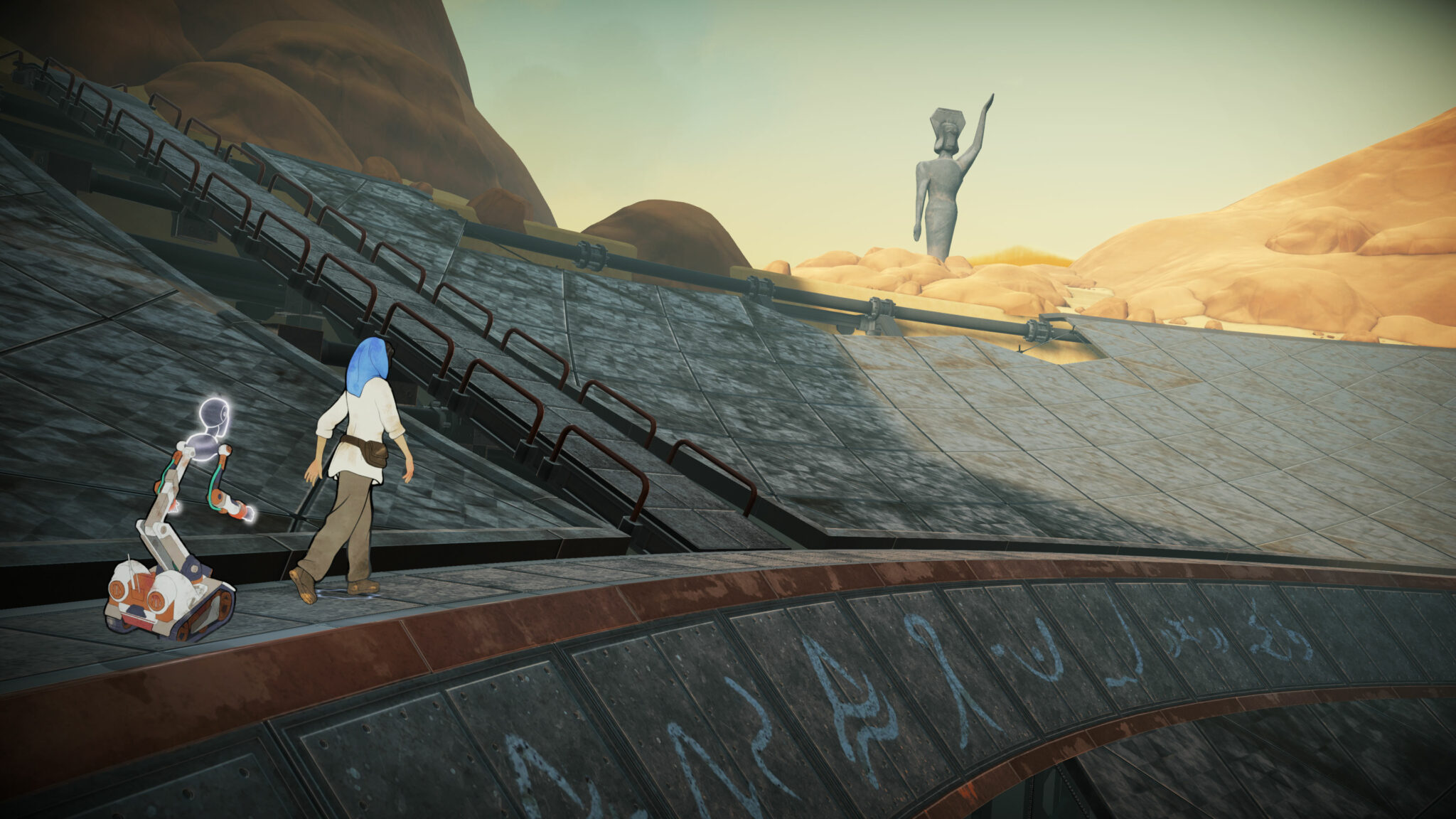
Aliya and Six traverse a robot-friendly surface after using a ramp. Inkle: https://www.inklestudios.com/heavensvault/
Aliya suffers from a chronic lung condition called shearlung. In my playthrough, she revealed that the condition was genetic and inherited, endemic to the population of her native, underprivileged home moon. Shearlung affects Aliya when she has to experience a lot of physical activity or high altitudes. Sometimes she prefers not to talk about it when others bring it up (that’s a dialogue option), but she can also divulge information about it. Ultimately, I learned that the condition is chronic, and it ties in to potential implicit ‘why is life even worth living if my body is so seriously entropic?’ type choices for Aliya.
As a chronic illness sufferer, I have seen glimpses of representation in characters over the years, but never have I seen a writer or designer dare to look at chronic illness in this way–and with sensitivity, allowing the player to infer what they wish rather than foist these thoughts upon them.
While Aliya’s shearlung was not a major part of the plot in my playthrough, it felt like a major point of character development for me, especially towards the end of the game. Her illness is internal and invisible. People would describe her as tough…but inwardly, her body has manifested what she might feel is a serious defect. It affects her whether she chooses to acknowledge it or not, and it doesn’t affect her level of determination unless the player chooses.
I’ve always felt like my health issues were driving the body, and to an extent, they do. Health issues do affect my attitude, and I’m not weak because I’m honest with myself about it, and clear about my limitations, especially when safety is concerned on a hike or at a larp.
Seeing that internal struggle and this representation play out had me in tears even before heftier reveals further towards the end of the game. The incorporation of shearlung into Aliya’s story and the way it was done encouraged me to trust the writers and enjoy story immersion in a way I normally only experience in a larp while I am physically portraying a character.
Considering Heaven’s Vault? Go For It
I’m almost 40 and have been a gamer since I got my hands on an original Nintendo when they first came out.
This is now my favorite video game for the many reasons I listed above. I didn’t need VR goggles, an in-person experience, or even other people to learn more about myself and find breathtaking, edge-of-seat, and quiet, solitary immersion all in one game.
I played this game on PC, but it’s also available on PS4 and the Nintendo Switch.
Material disclosure: The author has received no compensation from the game company for the publication of this review.

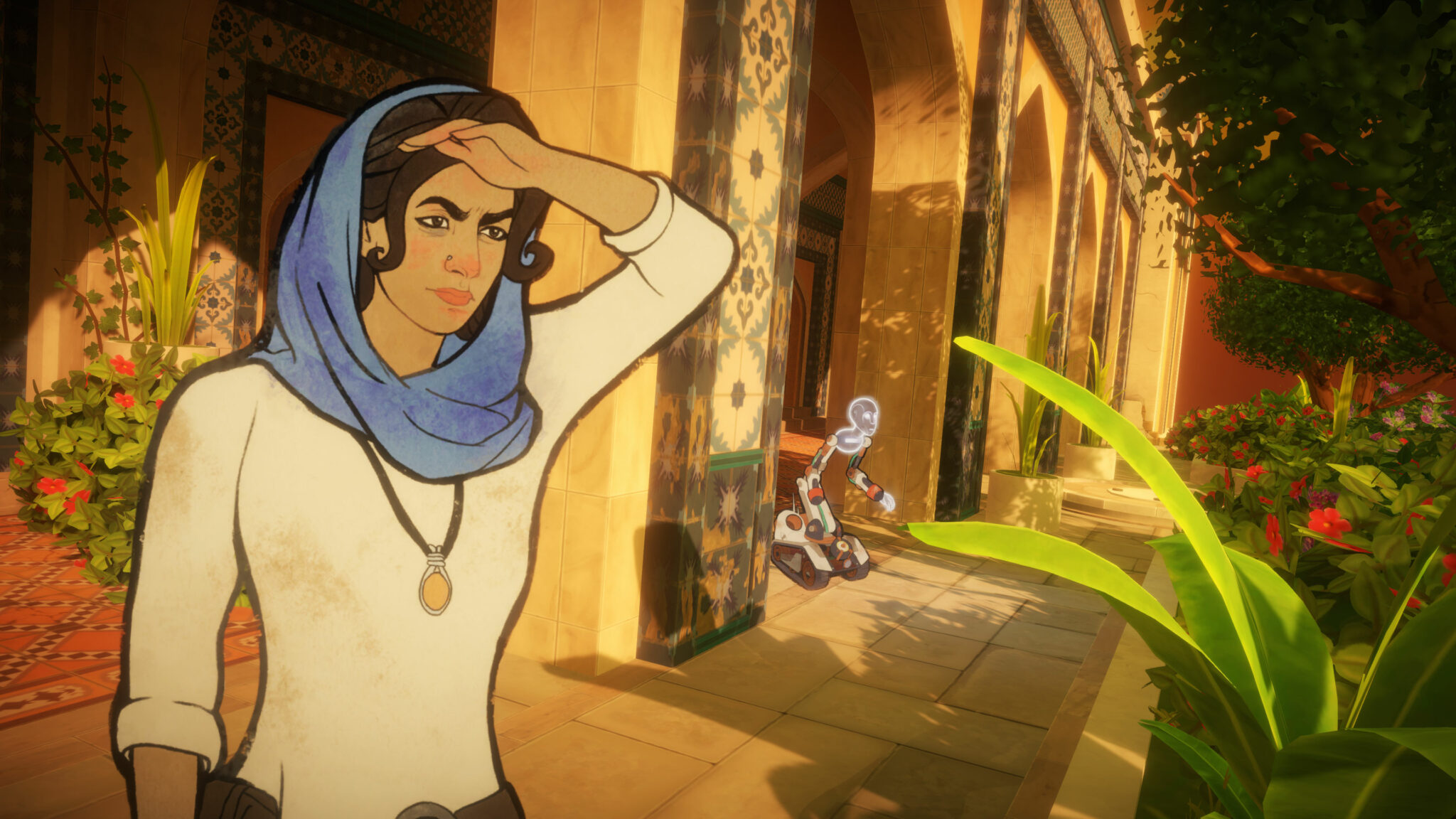

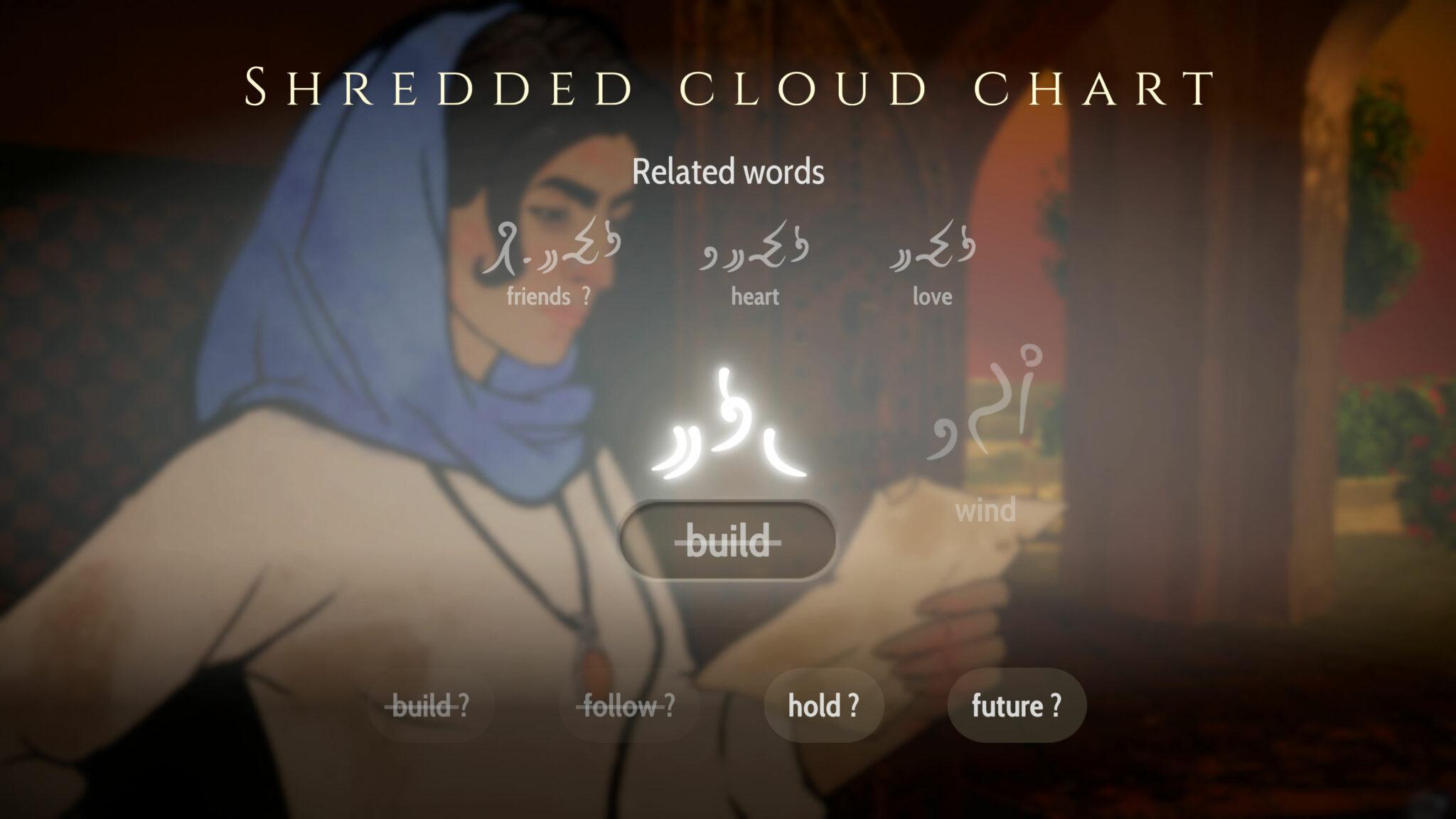
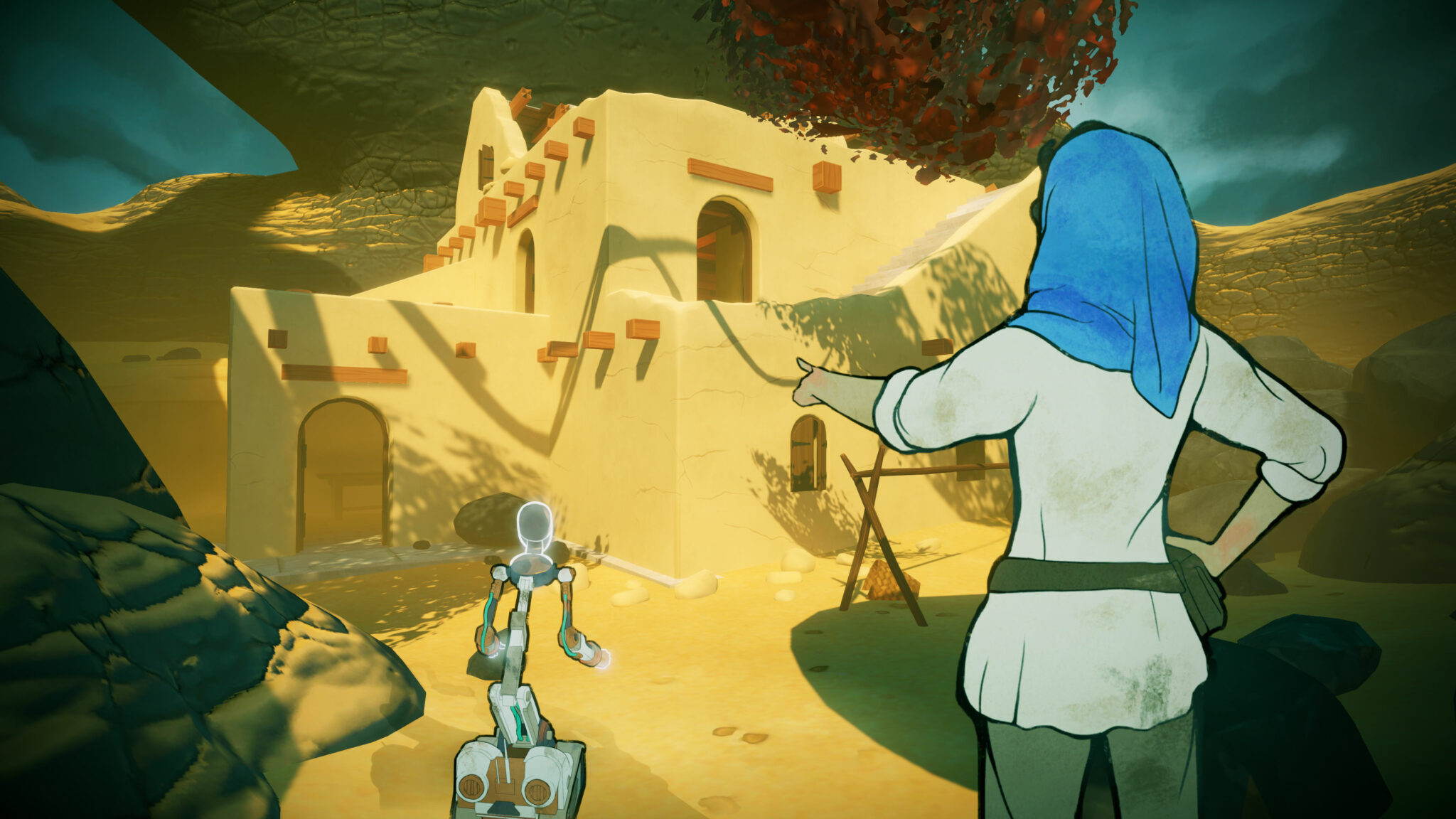
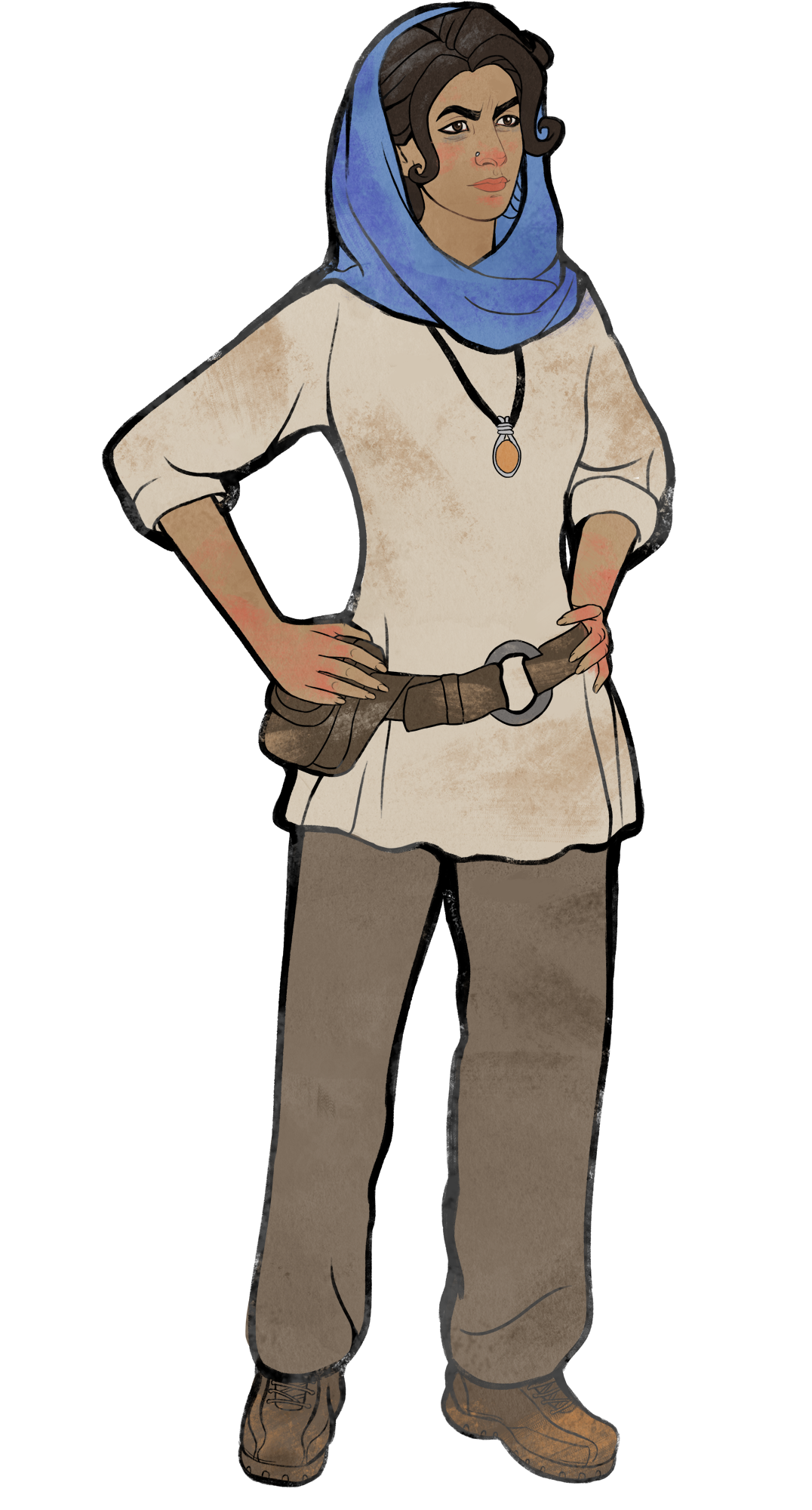
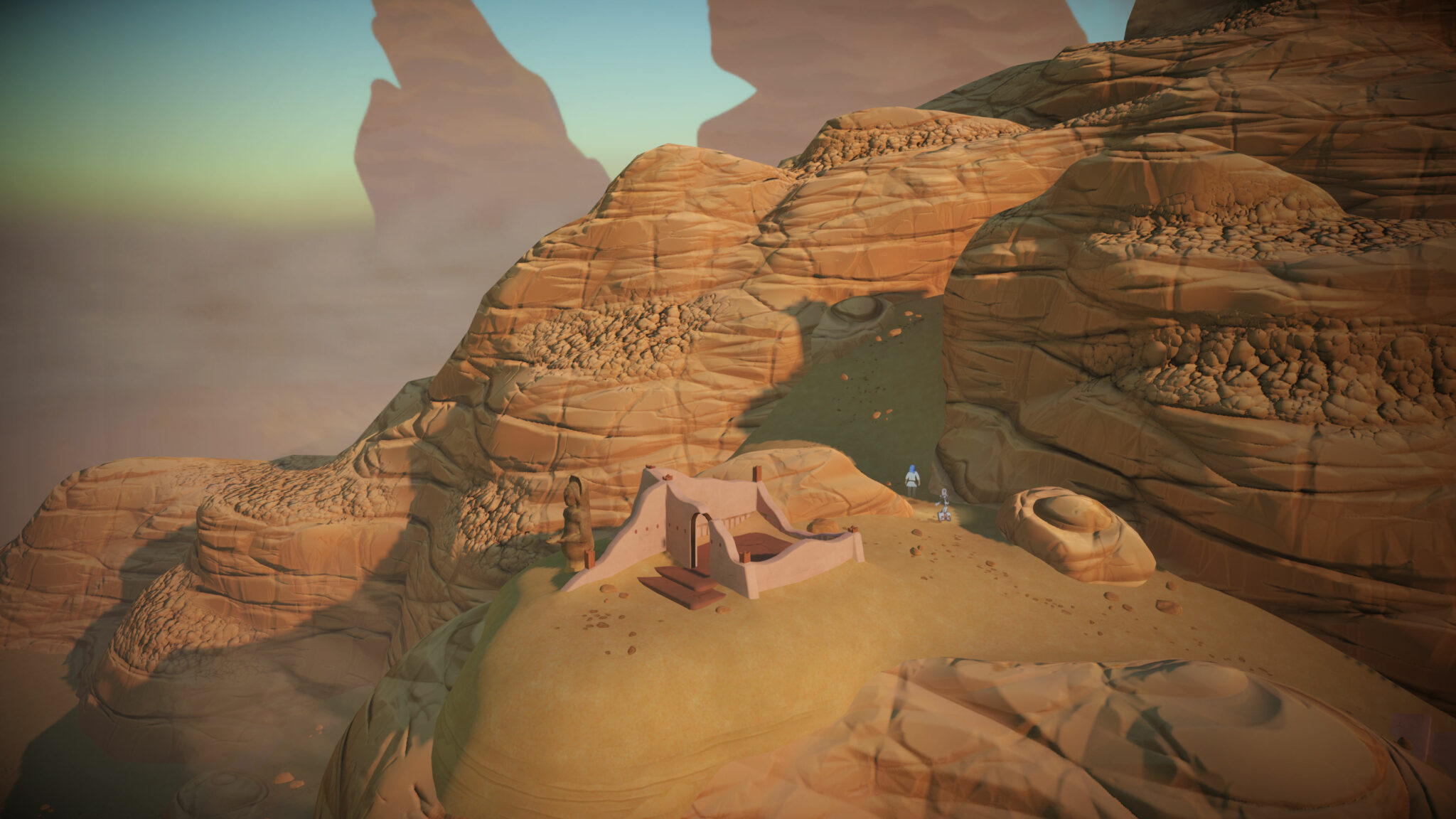



![What’s Pop-in’ in Philadelphia’s Museum of Art? [Photo Gallery]](https://geekinitiative.com/wp-content/uploads/2016/02/P1120973-scaled.jpg)
